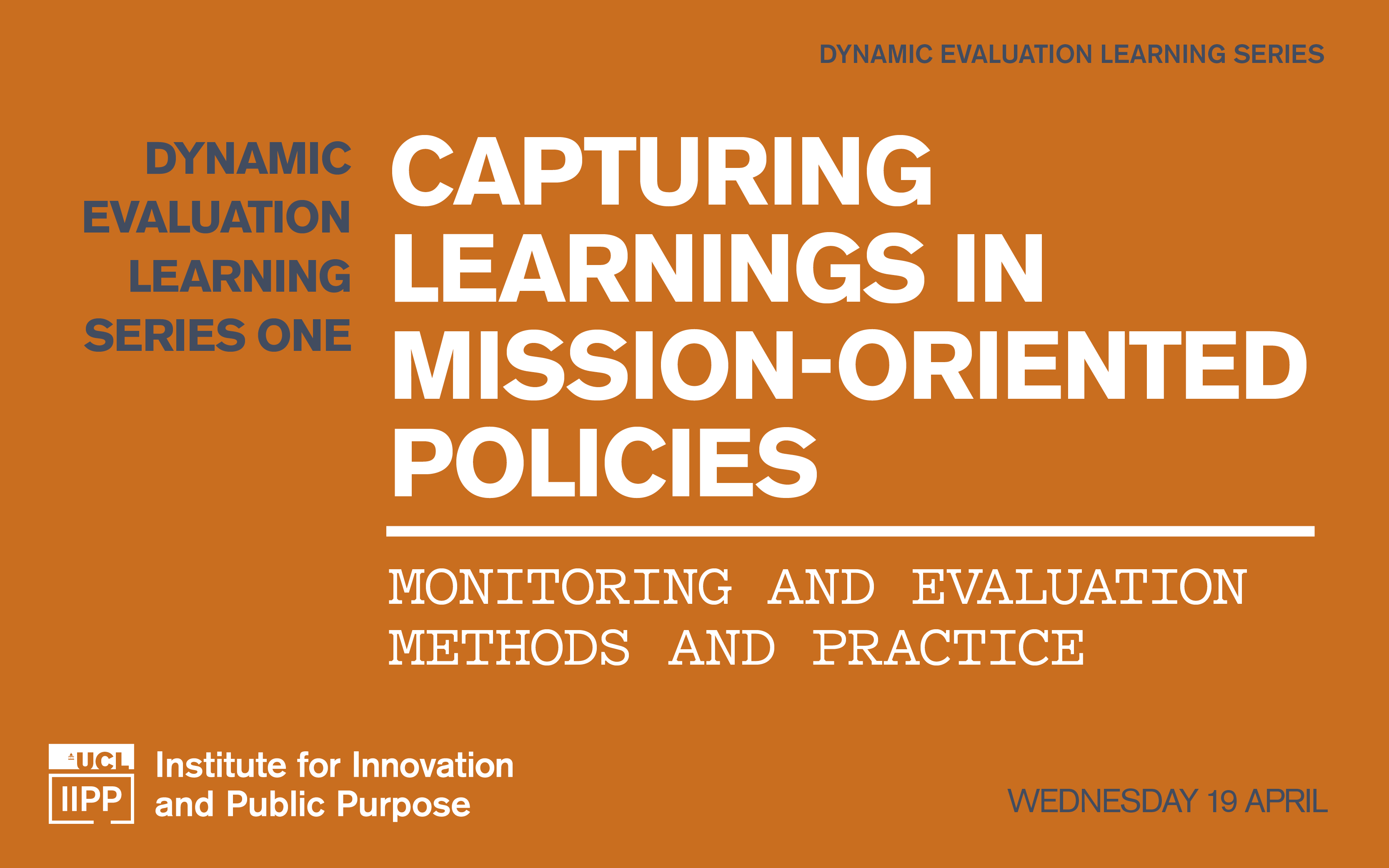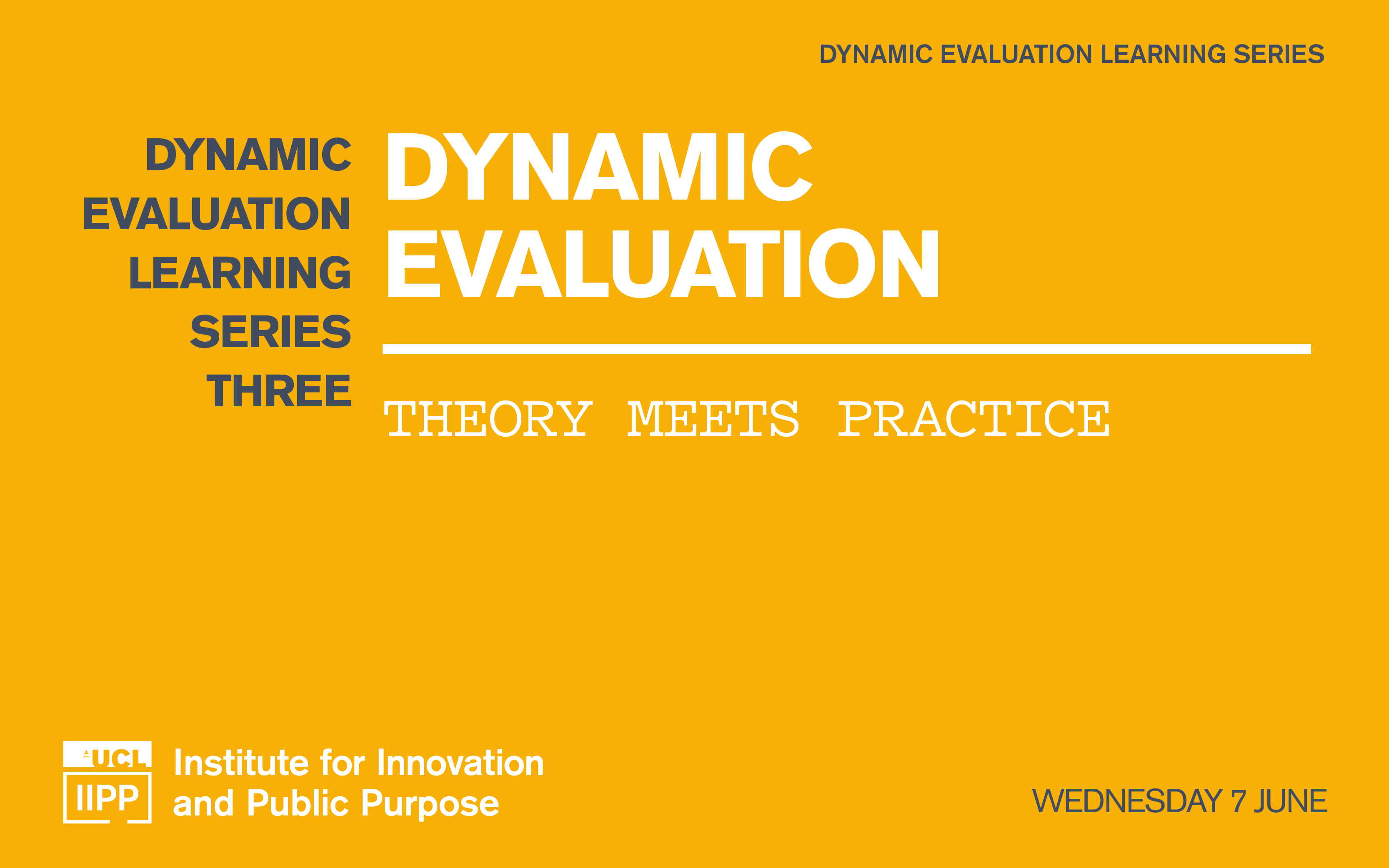Learning from the field: Emerging practices in mission learning
17 May 2023, 10:00 am–11:30 am
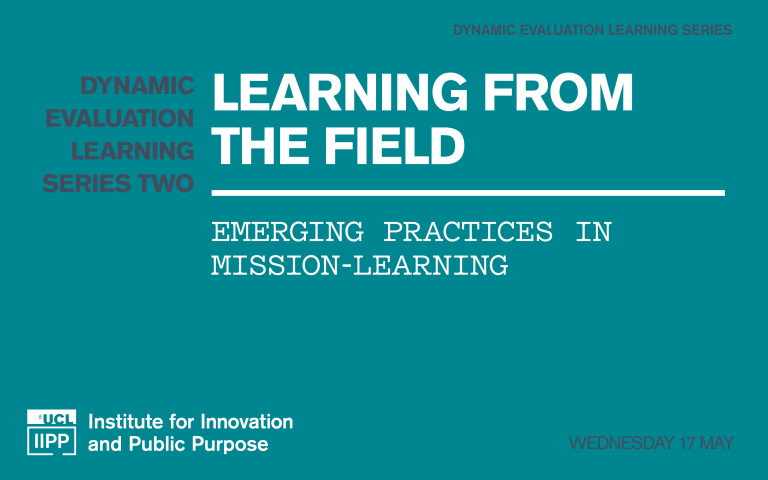
Join us in our second learning series on dynamic evaluation, hearing directly from practitioners about their ground experience in monitoring and evaluating challenge-driven policies and missions.
Event Information
Open to
- All
Organiser
-
IIPP Policy Studio
Capturing learning from missions (mission-learning) through a structured monitoring and evaluation approach poses barriers and opportunities. Mission-learning implementation is central to the idea of experimentation, where goals, targets, and programmes are tested to ensure missions stay grounded and adaptive to grand challenge.
This learning series event explores and highlights the barriers and opportunities in experimental and dynamic approaches to mission learning. We’ll be hearing from on-the-ground-experience of monitoring and evaluation practitioners Bartholomew Armah (UN Economic Commission for Africa), Ruth Puttick (Open Innovation Team) and Aditi Chatterjee (METIP) in the context of missions aimed toward innovation and transformative changes.
This event is the second of three events in the Dynamic Evaluation Learning Series, and part of the IIPP Policy Studio’s work in ‘Dynamic Monitoring and Evaluation for Missions, Innovation, and Transformative Policies’. Leam more about this work and other events here.
This event will be held on Zoom. Tickets are free, but booking is required. The talk will also be recorded and uploaded to our IIPP YouTube channel at a later date.
Other events in the Dynamic Evaluation Learning Series
Weds, 19 April (10am-11:30am BST)
Capturing learnings in mission-oriented policies: Monitoring and evaluation methods and practice
Weds, 7 June (10am-11:30am BST)
About the Speakers
Rainer Kattel
Professor of Innovation and Public Governance at UCL Institute for Innovation and Public Purpose

Professor Kattel has also served on various public policy commissions, including the Estonian Research Council and European Science Foundation. He has worked as an expert for the OECD, UNDP and the European Commission, and served as a member of E-Estonia Council advising the Prime Minister of Estonia. Currently, he leads the Estonian Government’s Gender Equality Council.
He has published extensively on innovation policy, its governance and specific management issues. In 2013, he received Estonia's National Science Award for his work on innovation policy.
Bartholomew Armah
Chief of Development Planning in the Macroeconomics and Governance Division at UN Economic Commission for Africa
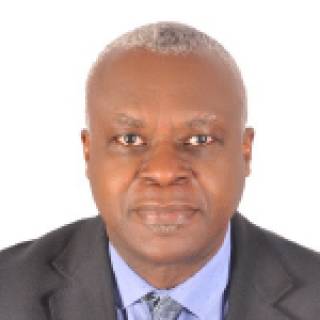
He is currently the Chief of Development Planning in the Macroeconomics and Governance Division at ECA. Professor Armah is an expert in debt management, economic development, development planning and international trade. He conceptualized and designed the Integrated Planning and Reporting Tool (IPRT), a development planning software that digitizes the alignment of national development plans with continental and global frameworks such as the Africa Union’s Agenda 2063 and the 2030 Agenda for Sustainable Development. He has spearheaded several ECA reports including the “Africa Sustainable Development Report”, the which evaluates Africa’s performance on the 2030 Agenda and the African Union Agenda 2063, and Special Drawing Rights and the Coronavirus Crisis. He provided technical advice to the Executive Secretary of the Economic Commission for Africa on the design of the Liquidity and Sustainability Facility, a special purpose vehicle designed to lower the cost of commercial borrowing by enhancing the liquidity and demand for sovereign bonds issued by emerging market economies.
In 2019, he served as the Policy and Planning Coordinator of the UN Secretary General’s Transition Team for the reform of the development system (October 2018-January 2020). His latest publication, Prioritizing interventions for sustainable structural transformation in Africa: a structural equation modelling approach provides a framework for policymakers to optimally sequence economic, social and environmental policy interventions to achieve sustainable structural transformation.
Ruth Puttick
Senior Policy Advisor at Open Innovation Team
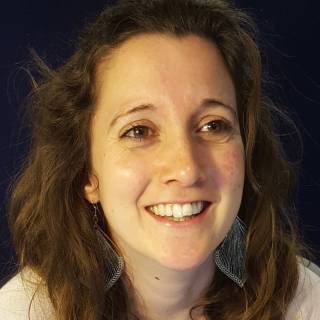
Aditi Chatterjee
Monitoring, Evaluation, Research & Learning (MERL) Specialist at METIP
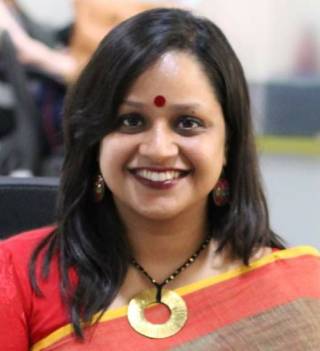
She specializes in large scale developmental evaluations, complexity aware monitoring, randomized control trials, and quasi experimental mixed methods studies, with up to 80,000 respondents, and 10 consortium partners. She has extensive experience in leading MEL studies in the domains of decent work, anti-human trafficking, ethical supply chains, and livelihoods.
She is a Steering Committee member of METIP - the global community of practice for researchers and MEL professionals in the anti-human trafficking space. She also serves as a technical trainer and advisor to Indian and global non-profits and accelerators on developing their theories of change and MEL systems.
Aditi holds an MBA from the University of Oxford, where she was a Weidenfeld-Hoffman Scholar.
After over a decade in the industry with corporate consulting firms, social enterprises, and non-profits including KPMG, EY, Kaivalya Education Foundation, and Sattva Consulting, she now practices as an independent consultant for global MEL programs.
 Close
Close


